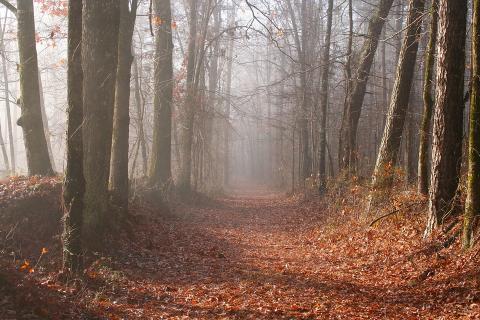
It's August and I'm traveling through the state of Mississippi, driving from one bookstore to the next for reading events for my first novel. I was born in Mississippi and lived here until I was old enough to legally buy a drink. The book is set here.
The first reading is at Lemuria Books in Jackson, the city where I was born and where I lived until college. The first people who show up are the parents of a childhood friend. I don't recognize them right away, but they grin at me and remind me who they are and I find I'm thrilled to see them. The whole night is like that. People I haven't seen since high school or college suddenly appear in front of me and I grasp at names and at connections. Mostly I find what I'm searching for in the corners of my brain. When strangers show up, I struggle to remember how I know them and am relieved to learn that I don't. My memory is not failing me yet.
Each day here is hot and humid, though the weatherman on the local news announces a cold front coming through. The cold front means it will only be 95 or 97 degrees instead of 101. The heat index may not rise all the way to 115, as it has for the past week. We are grateful for even a little relief. One day as my husband and I take an afternoon walk, we talk about how we are both constantly sticky. "Acceptance is the only way to deal with this kind of heat," I tell him, as if I still know something about it. The truth is, I have forgotten how to be this hot.
On Saturday we drive to Natchez, the city where my father was born and raised. I'm scheduled to read and sign books at Turning Pages Books & More. The store is charming and a small terrier named Sugar has the run of the place. Over the course of an hour or so, the door to the little shop opens again and again as people enter, each one bringing in a little more heat from the sweltering day outside. The two ladies who run the store are gracious and soft-spoken. They put out lemonade and cookies, encourage me to read a bit more, and thank me profusely for doing so. "Your family is so nice," they tell me. Of the two dozen or so people who show up, nearly 20 are related to me in some way. Some missed the reading in Jackson and drove several hours to make this one. Some live nearby and come dragging their whole family and a few coworkers. Later that night we meet up at a tamale house called Fat Mama's where we eat spicy tamales with sporks and drink frozen "Knock-You-Naked" Margaritas from plastic cups.
The next morning, my husband and I decide we need to find two Natchez landmarks. With my parents and aunt in tow, we drive toward the Natchez cemetery in search of the Turning Angel. We weave past gravestones planted 300 years ago, past live oaks and crape myrtles heavy with Spanish moss. Finally we find her, the angel whose eyes supposedly follow you wherever you stand. I keep my own eyes on her and walk past slowly. "I can see it," I say. My aunt rolls her eyes. She tells me I'm imagining it, that I'm seeing what I want to see. Probably she's right, but I don't care.
Next we go in search of the Devil's Punchbowl, a large depression in the river bluff that is rumored to be the site of many terrible things. My father says he remembers a story about a plane crash where the plane was never found. It is rumored to have been a hideout for river pirates. A little research tells me something much worse; it is the site of a concentration camp for freed slaves and ultimately a mass grave for the tens of thousands of men, women, and children who died there in terrible conditions. Like everything else in Natchez, it is haunted. There is no road sign pointing to the site and though we must have driven right past it, we don't find it. Perhaps it is just as well. Better to find the angel and leave the devil alone.
We are heading to the Delta next. I'll report back. In the meantime, the weatherman says we may get some rain which could cool things down a bit. It might only get up to 94 today, though the humidity is on the rise. We'll deal with it. What choice do we have?

